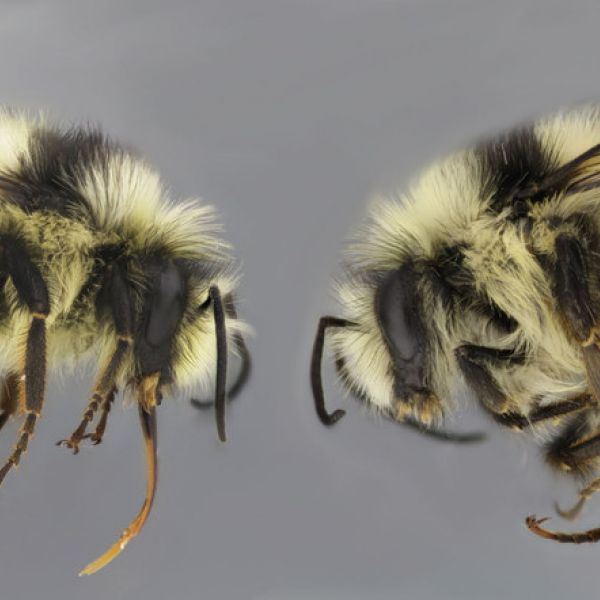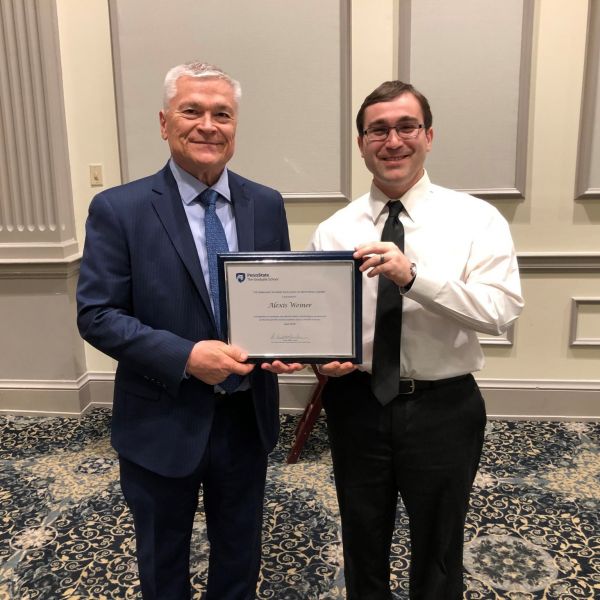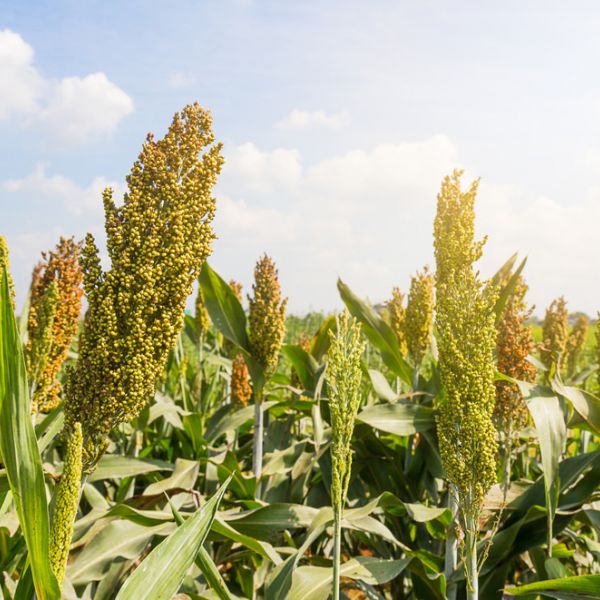News

Jun 14, 2019
Xin Zhang honored as Pew Scholar in the Biomedical Sciences
Xin Zhang, holder of the Paul Berg Early Career Professorship and assistant professor of chemistry and of biochemistry and molecular biology at Penn State, has been selected as a Pew Scholar in the Biomedical Sciences by The Pew Charitable Trusts, a national philanthropy organization based in Philadelphia.
Full Article

Jun 07, 2019
Bruce Chen Recognized for Outstanding Student Leadership
The PhD candidate in genetics was lauded for his time as HGSAC chair, in which he worked to help his fellow graduate students identify a number of possible future career paths.
Full Article

May 02, 2019
How The Bumble Bee Got Its Stripes
Researchers have discovered a gene that drives color differences within a species of bumble bees. This discovery helps to explain the highly diverse color patterns among bumble bee species as well as how mimicry — individuals in an area adopting similar color patterns — evolves.
Full Article

May 02, 2019
NIH Grant Funds Research to Pinpoint Natural Selection’s Influence on Genomes
With a $1.7 million grant through the National Institutes of Health, researchers led by Michael DeGiorgio will begin to tease apart individual forces to understand how much influence natural selection has had on our evolutionary path.
Full Article

Apr 29, 2019
Food Scientist Kovac Receives Young Investigator Award
Jasna Kovac, assistant professor of food science in Penn State’s College of Agricultural Sciences, recently was named recipient of the Institut Merieux Young Investigator Award in Antimicrobial Resistance from the International Association for Food Protection.
Full Article

Apr 17, 2019
Feiyue Lu Wins Simpson Award for Innovative Research
MCIBS student Feiyue Lu's research into RNA in Drosophila flies was recognized for its complexity, scope, and difficulty.
Full Article

Apr 15, 2019
Five Huck Researchers Among Winners at Grad Student Awards
A quintet of Huck doctoral candidates were recognized for excellence in their studies and collaborations within and outside of Penn State.
Full Article

Apr 04, 2019
Insect-deterring sorghum compounds may be eco-friendly pesticide
Compounds produced by sorghum plants to defend against insect feeding could be isolated, synthesized and used as a targeted, nontoxic insect deterrent, according to researchers who studied plant-insect interactions that included field, greenhouse and laboratory components.
Full Article

Apr 03, 2019
Michael Axtell Among Five Receiving Faculty Scholar Medals
Five Penn State faculty members have received 2019 Faculty Scholar Medals for Outstanding Achievement for excellence in scholarship, research and the arts.
Full Article

Apr 03, 2019
Guiltinan, Maximova receive the 2019 Kopp International Achievement Award
Mark Guiltinan, professor of plant molecular biology, and Siela Maximova, research professor of plant biotechnology, both in the College of Agricultural Sciences, are the recipients of Penn State's 2019 W. LaMarr Kopp International Achievement Award.
Full Article